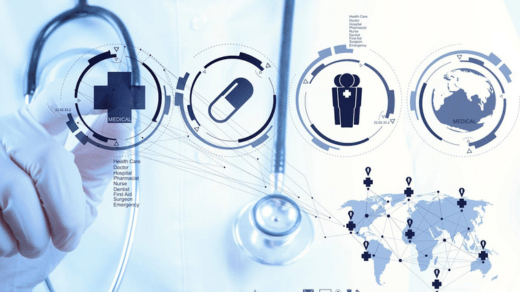
Regular physical check-ups are a cornerstone of preventive healthcare. They play a crucial role in early detection and intervention for various health conditions. Here, we’ll discuss 30 points highlighting the pros and cons of regular physical check-ups.
Pros:
- Early Detection: Check-ups help in the early detection of health issues.
- Disease Prevention: They contribute to preventing diseases.
- Life Extension: Early detection can lead to longer, healthier lives.
- Chronic Disease Management: Check-ups help manage chronic conditions.
- Health Education: Patients receive guidance on health and wellness.
- Customized Care: Healthcare plans are tailored to individual needs.
- Vaccination Updates: Check-ups ensure timely vaccinations.
- Blood Pressure Monitoring: Hypertension can be managed or prevented.
- Cancer Screening: Early cancer detection improves survival rates.
- Heart Health Assessment: Cardiovascular health is evaluated.
- Mental Health Support: Mental health concerns can be addressed.
- Weight Management: Check-ups aid in weight management.
- Bone Health: Bone density and osteoporosis can be evaluated.
- Vision and Hearing Screening: Vision and hearing issues are detected.
- Dental Health: Oral health is assessed during check-ups.
- Medication Review: Medications can be reviewed and adjusted.
- Family Health History: Family health trends are considered.
- Regular Immunizations: Vaccination schedules are maintained.
- Child Development: Children’s growth and development are monitored.
- Preventive Screenings: Screenings help prevent severe health issues.
- Healthy Aging: Check-ups support a healthy aging process.
- Stress Reduction: Regular care reduces healthcare-related stress.
- Improved Lifestyle: Lifestyle changes are encouraged.
- Health Monitoring: Patients receive continuous health monitoring.
- Early Dental Intervention: Dental issues can be addressed promptly.
- Individualized Counseling: Patients receive personalized advice.
- Enhanced Quality of Life: Regular care leads to a better quality of life.
- Better Sleep: Sleep issues can be diagnosed and treated.
- Support for Mental Health: Mental health concerns are addressed.
- Emergency Preparedness: Medical records are updated and ready.
Cons:
- Time-Consuming: Check-ups can be time-consuming.
- Financial Cost: The cost of healthcare can be a barrier.
- Fear and Anxiety: Apprehension about medical procedures.
- Inconvenience: Scheduling and attending appointments may be inconvenient.
- Waiting Times: Long waiting times at healthcare facilities.
- Routine Overlooking: Individuals may skip regular check-ups.
- Perceived Unimportance: Some may not see the importance of check-ups.
- Negative Test Results: Negative results can lead to complacency.
- Overdiagnosis: Overdiagnosis of conditions can be a concern.
- Healthcare Disparities: Access to healthcare varies.
- Inaccurate Information: Misinformation about medical tests.
- Medical Errors: Errors in diagnosis or treatment.
- Mental Health Stigma: Stigma surrounding mental health care.
- Invasive Procedures: Some tests may be invasive and uncomfortable.
- Communication Challenges: Miscommunication with healthcare providers.
- Insurance Barriers: Insurance may not cover certain tests.
- Medication Side Effects: Medication side effects can be challenging.
- Healthcare-Associated Infections: Risk of infections in healthcare settings.
- Limited Access to Specialists: Not everyone has access to specialists.
- Treatment Decision Dilemmas: Difficult treatment decisions if issues are detected.
- Limited Time with Providers: Short appointments limit discussions.
- Privacy Concerns: Concerns about the privacy of medical information.
- Inaccurate Family History: Incomplete or inaccurate family health history.
- Resistance to Change: Resistance to adopting healthier lifestyles.
- Lack of Support: Inadequate support for health changes.
- Unpredictable Healthcare Costs: Uncertainty about healthcare expenses.
- Fear of Test Results: Anxiety about potentially bad news.
- Inconvenient Locations: Inaccessible healthcare facilities.
- Transportation Barriers: Transportation issues can hinder access.
- Lack of Awareness: Limited knowledge of available healthcare services.
In conclusion, regular physical check-ups offer numerous benefits for overall health and well-being, emphasizing early detection and intervention for better outcomes. However, they come with challenges, such as time, cost, and psychological barriers. It’s essential to prioritize regular check-ups, seek affordable healthcare options, and communicate openly with healthcare providers to address health concerns and achieve long-term wellness.
